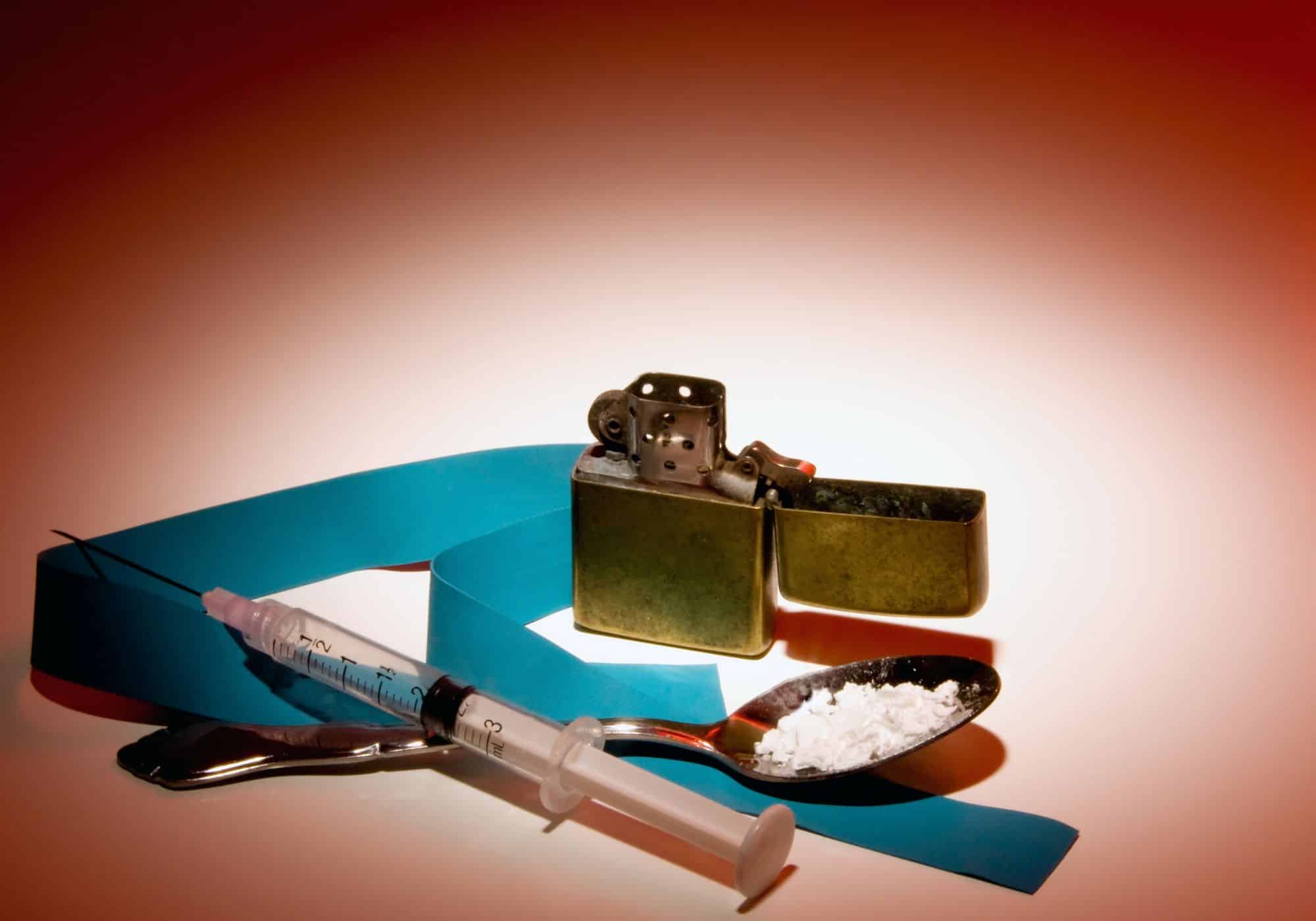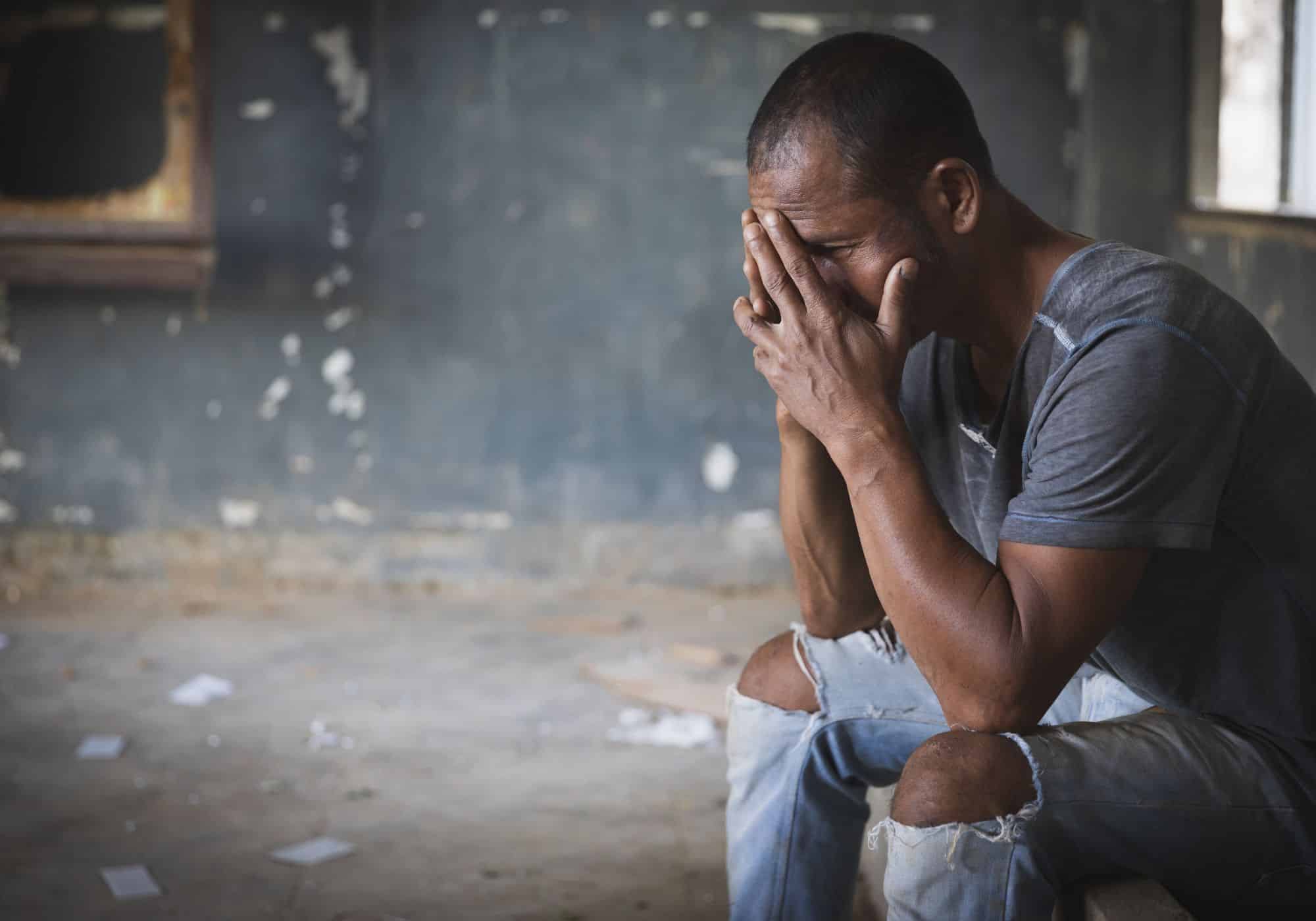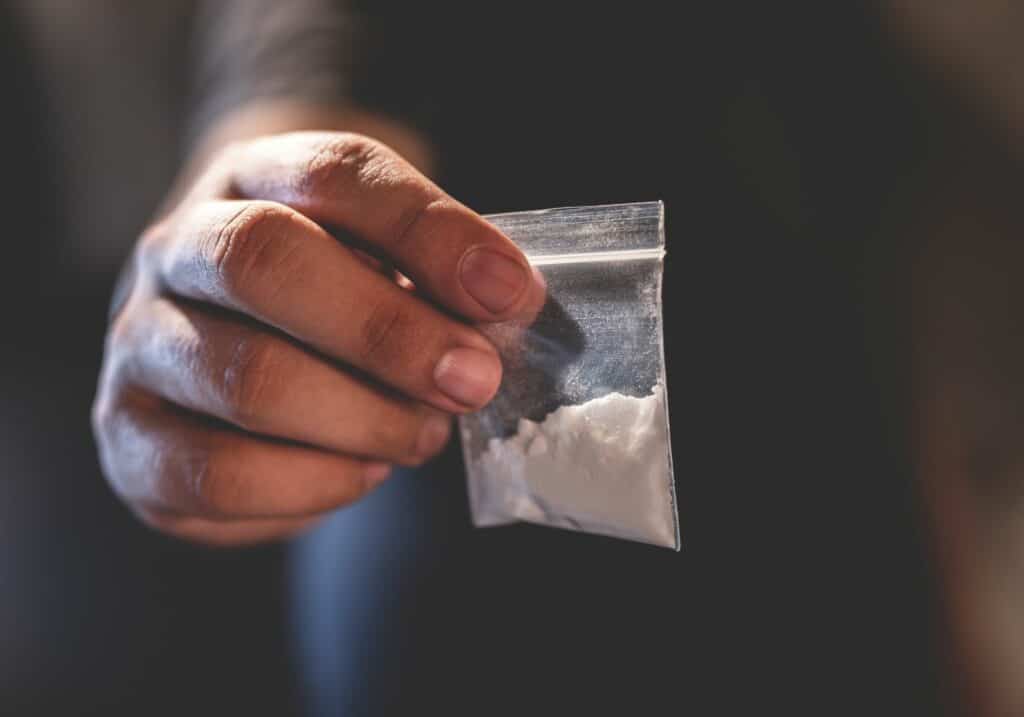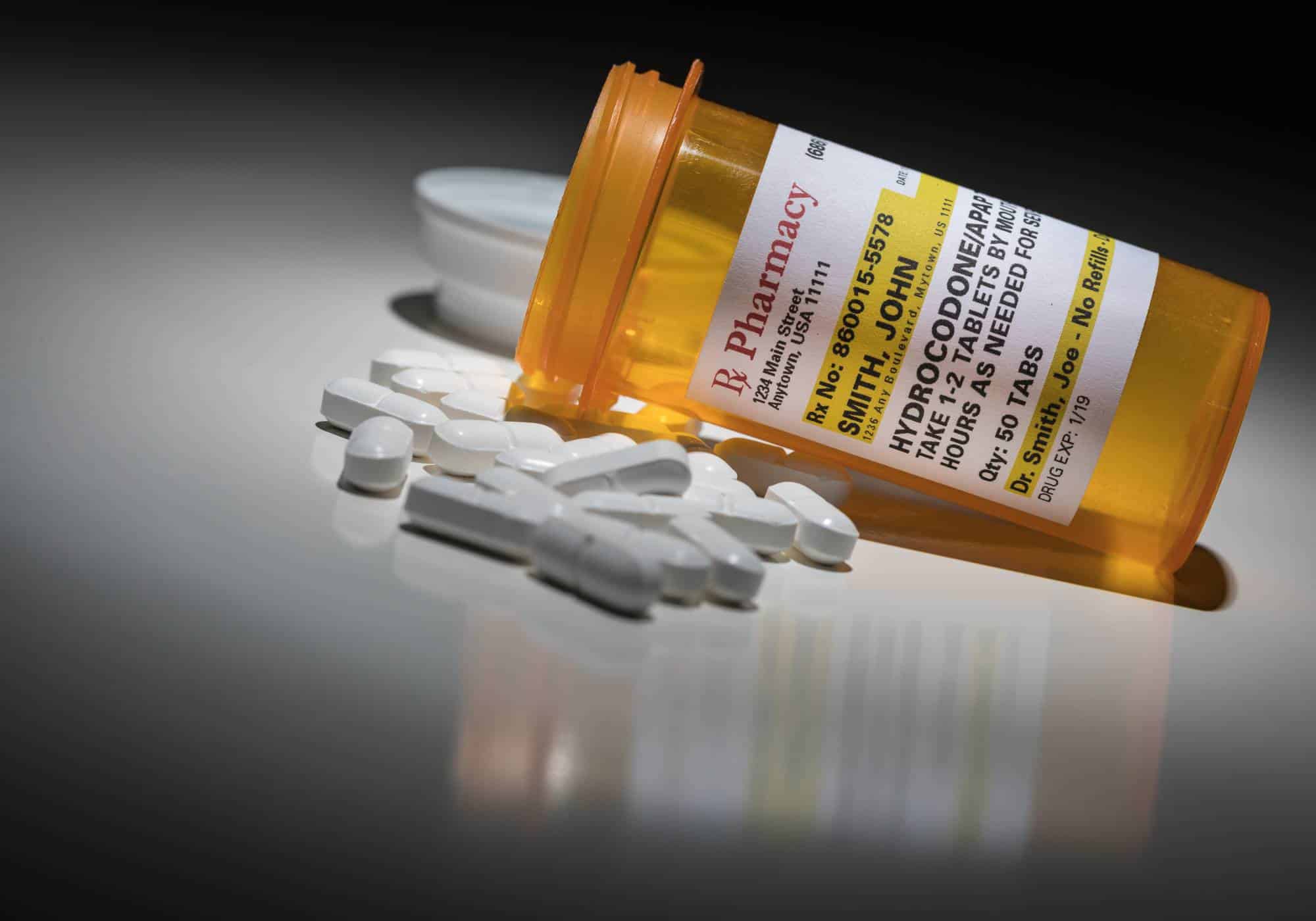Crack cocaine, commonly referred to as “crack,” is a highly potent substance created by combining cocaine with baking soda and water. Unlike its powdered counterpart, which is typically snorted, crack is smoked. This method of consumption makes it exceedingly powerful and increases its potential for addiction. Despite the challenges crack cocaine use presents, there are numerous treatment options available, offering comprehensive support and recovery services for those struggling with addiction.
What is Crack Cocaine?
Crack cocaine is derived from the coca leaves of South America, with its powdered form, cocaine, having been extracted for over a hundred years. In the early 20th century, cocaine was initially used by medical professionals to treat a variety of health issues and was even a component of the original Coca-Cola recipe. However, after thorough research revealed its significant impact on the brain and its addictive properties, cocaine was designated as a Schedule II drug. This classification means that despite its high risk of abuse, cocaine can be legally prescribed for certain medical uses within strict guidelines.
Cocaine comes in two forms: as a powder, commonly known as cocaine or coke, and as a solid rock, known as crack cocaine. Crack is created by mixing powdered cocaine hydrochloride with water and usually baking soda, then heating the mixture until it solidifies into a rock form. Upon cooling, this rock is broken into smaller pieces and sold as crack cocaine.
Named for the crackling sound it makes when heated, crack cocaine is smoked to produce a quick, intense high, typically lasting five to ten minutes. This short-lived effect often leads users into a dangerous pattern of repeated use to chase the high, causing serious health implications. Crack is cheaper than its powdered form, mainly because of its impurity, yet it provides a strong euphoric effect.
To increase profits or change the drug’s effects, crack cocaine is frequently mixed with various substances, which could be hazardous. Some common additives include:
- Corn Starch
- Flour
- Ritalin
- Amphetamine
- Heroin
- Procaine
- Talcum Powder
Each additive introduces its own risks and potential side effects, complicating the dangers associated with crack cocaine use.
Crack Addiction Treatment
Battling a crack cocaine addiction presents significant challenges on both a physical and psychological level. However, the pathway to recovery, while demanding, is made considerably smoother with the aid of experienced professionals. Key to embarking on this journey is the development of a steadfast resolve to quit; this commitment serves as a crucial beacon, illuminating the way through the trials of recovery. Furthermore, a wide array of support systems stands ready to bolster your efforts towards achieving lasting sobriety.
For individuals grappling with crack addiction in Atlanta, GA, taking the step to seek professional help is a pivotal, potentially life-transforming action. Engaging in a treatment program offers the structure, guidance, and support necessary to navigate the complexities of addiction recovery, ensuring that each step forward is taken with confidence and the assurance of compassionate assistance.
Why Is Crack Addictive?
Crack cocaine continues to pose a serious public health issue in the United States, attributed to its easy accessibility and low cost. The substance’s highly addictive quality stems from its effect on the brain’s dopamine system, a key neurotransmitter linked to pleasure, motivation, and various other cognitive functions. Under normal circumstances, dopamine signals pleasure and then gets reabsorbed, but crack cocaine disrupts this cycle by blocking dopamine transporters. This leads to an excess of dopamine, creating a powerful sense of euphoria.
However, the intense high is short-lived, often leaving users irritable, exhausted, and seeking more of the drug to recapture that euphoric state. This repetitive cycle of chasing highs and avoiding lows propels users into a pattern of frequent use, which can quickly spiral into tolerance, dependence, and addiction.

Signs of Crack Cocaine Addiction
Crack cocaine, a potent stimulant, often leads to distinct behaviors and physical signs in its users. Recognizing these signs can be crucial in determining if someone close to you might be struggling with crack cocaine abuse.
Signs of crack addiction include:
- Unpredictable, erratic, or aggressive actions
- Profound fatigue following periods of high energy
- Dental issues, including tooth decay and gum bleeding
- Altered eating patterns or shifts in appetite
- Symptoms indicative of overdose or withdrawal
Additionally, individuals using crack frequently possess specific drug paraphernalia, such as narrow glass pipes designed for smoking the substance. Crack cocaine itself is characterized by its crystalline appearance, ranging in color from various shades of white, resembling small, rock-like crystals. If you or a loved one are struggling with crack addiction, call our crack cocaine addiction treatment center in Atlanta, GA at 678-929-6304.
Symptoms Of Crack Cocaine Addiction
dentifying both the physical and mental indicators of crack cocaine addiction is critical for getting the necessary assistance for yourself or aiding someone in need. Below are key symptoms to be aware of:
Physical Symptoms of Crack Cocaine Addiction
- Eyes appearing red or bloodshot.
- Sudden episodes of fainting or losing consciousness.
- Experiencing feelings of sickness.
- Breathing difficulties or unusually fast breathing.
- Seizure episodes.
- A constant state of restlessness, unable to remain still.
- Muscle twitches or spasms.
- Pupils appearing wider than usual.
- Blistered or burnt lips.
- Recurring nosebleeds.
Psychological and Behavioral Symptoms of Crack Cocaine Addiction
- Noticeable swings in mood.
- Challenges in maintaining focus or concentration.
- Changes in sexual desire.
- Experiences of heightened joy or euphoria.
- Losing interest in hobbies or activities once enjoyed.
Being alert to these signs is vital for recognizing potential crack cocaine addiction. It’s important to handle such situations with empathy and an open mind, remembering that addiction can impact anyone, transcending all societal and personal boundaries. Acknowledging these signs is a crucial initial step in the journey toward seeking effective treatment and support. This approach can markedly improve an individual’s life quality and overall well-being, emphasizing the importance of looking beyond stereotypes to address the underlying behaviors and symptoms. If you or a loved one are struggling with crack cocaine addiction, call our crack rehab in Atlanta, GA.
Short and Long-Term Effects of Crack Use
Using crack cocaine, even briefly, can swiftly lead to addiction and trigger severe health issues, underscoring the drug’s dangerous potential.
Short-Term Effects of Crack Cocaine Abuse
Given its high potency and rapid absorption into the bloodstream, the immediate side effects of crack cocaine can be severe and alarming.
Short-term consequences include:
- Widened pupils
- Elevated heart rate
- Increased blood pressure
- Profuse sweating
- Episodes of sudden aggression or bursts of energy, often followed by intense fatigue
- Experiencing hallucinations
- Rise in body temperature
- Mood fluctuations
- Appetite changes, either increased or decreased
- Feelings of anxiety and paranoia
- Risk of heart attack and stroke
- Onset of depression
- The possibility of overdose
The addictive nature of crack cocaine means that even short-term use can quickly lead to a substance use disorder, with overdoses being a significant risk due to the drug’s fast-acting effects on the body.
Long-Term Effects of Crack Cocaine Abuse
With sustained use, the detrimental impact of crack cocaine extends, particularly affecting the cardiovascular system and increasing the likelihood of severe health events like heart attacks and strokes.
Long-term health consequences can involve:
- Persistent agitation
- Development of psychosis
- Cardiovascular issues
- Persistent nausea
- Risk of seizures
Given the extensive risks associated with crack cocaine use, pursuing treatment for addiction is crucial. Fortunately, there is a range of treatment facilities equipped to address various stages of drug use and addiction, offering essential support for those looking to recover. Engaging with a substance abuse treatment program for crack cocaine addiction could be a decision that saves a life, providing a path away from dependency and towards health and recovery.

What Causes Crack Cocaine Addiction?
Understanding addiction, especially to potent substances like crack cocaine, involves delving into a complex array of causes rather than pinpointing a single origin. It’s a nuanced journey that acknowledges addiction as the culmination of numerous contributing factors, steering individuals toward drug use.
Contrary to misconceptions of addiction being a mere lack of willpower or moral fortitude, it’s actually recognized as a sophisticated condition that profoundly impacts the brain. This condition fosters dependence and complicates efforts to stop using the substance, presenting significant hurdles even for those deeply committed to recovery.
Crack cocaine’s interaction with the brain’s reward mechanism is particularly notable. It induces powerful feelings of euphoria, motivating users to continue seeking out the drug in pursuit of recreating those sensations. This system not only governs the pursuit of pleasure but also regulates vital activities such as eating and social engagement. As usage persists, the brain’s response to these rewards lessens, requiring larger quantities of crack cocaine to replicate the initial euphoric states.
This drive to continue using crack cocaine, despite a clear understanding of its detrimental effects, underscores the profound ways in which addiction alters brain chemistry and function, engendering a deep-seated yearning for the drug. Given its nature as a chronic disease, the threat of relapse is ever-present, even after periods of abstinence. Nonetheless, a combination of tailored treatment plans and continuous support can pave the way to a successful recovery, emphasizing the critical role of sustained help and therapeutic interventions. If you or a loved one are struggling with crack cocaine addiction, call our crack cocaine rehab in Atlanta, GA.
Crack Overdose
An overdose from crack cocaine can occur rapidly, presenting symptoms that require urgent care. The key signs to watch for are:
- Sudden fever or an extreme feeling of heat.
- Intense chest pain, especially close to the heart area.
- Heart rate that is faster than normal, even when at rest.
- Extreme bursts of energy, agitation, or manic episodes.
- Nausea or a feeling of overall weakness.
- Hallucinations beginning to occur.
Telling the difference between the aftereffects of using crack and the symptoms of an overdose can be difficult. It’s common for users to mistake the critical signs of an overdose for the typical discomfort experienced after a crack binge, a dangerous error that could have lethal consequences.
If you or someone nearby shows any symptoms of a crack overdose, it’s essential to seek medical help immediately. Promptly calling 911 can be a life-saving action.
Crack Cocaine Withdrawal
Having medical oversight during the detoxification phase is essential to reduce the likelihood of relapse into crack cocaine usage. Crack withdrawal symptoms, while not typically life-threatening, can be intensely uncomfortable, heightening the urge to use again as a means to relieve the distress. Individuals trying to quit crack cocaine on their own often face greater challenges in managing these symptoms without professional support, leading to a higher risk of returning to substance use.
The severity and specific symptoms of crack cocaine withdrawal can vary based on several factors, including the individual’s level of addiction and the frequency and quantity of drug use.
Common withdrawal symptoms from crack cocaine include:
- Strong desires to use crack cocaine again
- Increased fatigue
- Feelings of restlessness or anxiety
- Experiencing nightmares
- Paranoia
- Episodes of depression
Although these withdrawal symptoms are generally not dangerous, the intensity of the cravings can make it exceptionally difficult for those in recovery to stay away from crack cocaine without adequate support. Furthermore, relapsing during the detox period can dangerously elevate the risk of an overdose. Therefore, accessing professional help and support during this critical time is not just beneficial but may be crucial for a successful and safe journey to recovery.
The Risks of Mixing Crack Cocaine and Alcohol
The combination of crack cocaine and alcohol significantly amplifies the risks involved, potentially leading to life-threatening situations. Consuming these substances together causes the liver to produce cocaethylene, a toxic chemical that remains in the body for an extended period and can reach dangerous concentrations. This interaction can lead to serious health problems, such as cardiovascular issues, seizures, and in some cases, fatal outcomes.
Additionally, crack cocaine affects how alcohol is processed in the body, enhancing its absorption and delaying its breakdown. This effect increases the likelihood of alcohol reaching harmful levels in the bloodstream, raising the risk of alcohol poisoning or overdose.
It’s essential to recognize the severe dangers posed by using crack cocaine and alcohol in conjunction. The lethal potential of this combination cannot be overstated, making it critically important for individuals dealing with substance abuse to be aware of these risks. There are many treatment programs available that offer support and guidance towards recovery and a sober lifestyle. If you or someone you know is facing addiction, reaching out for help could be a crucial step towards saving a life.
The Impact of Crack Cocaine Addiction During Pregnancy
The use of crack cocaine throughout pregnancy poses severe risks, including a heightened chance of miscarriage, premature delivery, and the occurrence of stillbirths. Babies born to mothers who use crack cocaine during pregnancy face an increased risk of being born with a low birth weight, which can pave the way for a host of long-term health complications.
Additionally, prenatal exposure to crack cocaine can lead to developmental issues in children, ranging from learning disabilities and behavioral challenges to a greater propensity for ADHD. Such exposure may also predispose these children to substance addiction in their later years.
Pregnant individuals grappling with an addiction to crack cocaine should know that support and help are within reach. A variety of treatment programs exist, specifically designed to assist in overcoming addiction and fostering a sober lifestyle. Seeking help is an essential move towards ensuring a healthier and brighter future for both the mother and her unborn child.
Identifying Crack Cocaine Addiction
The use of crack cocaine is characterized by an immediate, potent high that lasts for approximately 10 minutes, featuring intense euphoria, sharp focus, and a surge in energy. Following this high, individuals often experience a severe “crash” that can induce feelings of depression, anxiety, and paranoia.
Key physical signs that may indicate crack cocaine use include:
- Muscle twitching or spasms
- Regular occurrence of nosebleeds
- Pupils appearing significantly dilated
- An observable state of restlessness
- Lip blisters
- Burns on the fingers
Noticing these signs can be a crucial step in recognizing a potential addiction to crack cocaine, underscoring the importance of seeking timely intervention and support. If you or someone close to you is facing challenges with crack cocaine addiction, consider reaching out to a crack rehab center in Atlanta, GA, for help.

How Long Does Crack Stay In Your System?
Despite the short-lived high of crack cocaine, typically 5–10 minutes for smoking and up to 30 minutes when snorted, its remnants can stay detectable in the body for days to weeks after use.
The drug’s half-life is about one to one and a half hours, meaning it takes this long for half the amount of crack to be processed out of the body. Within two hours, only a quarter remains, with further reduction over time.
Detection times for crack cocaine depend on the test used and the individual’s metabolism. Hair tests can trace crack use up to three months back, urine tests for up to two days, saliva tests for around 36 hours, and blood tests for up to 7.5 hours post-use.
The length of time crack is detectable is influenced by how much and how often it’s used, as well as the user’s overall health. Those with liver conditions might find the drug stays in their systems longer due to slower drug metabolism.
What Are The Challenges When Quitting Crack?
Quitting crack cocaine poses distinct challenges, with no medical substitutes like those available for opioid addiction to ease the process. Achieving sobriety from crack requires completely stopping its use, a daunting task for many due to the absence of pharmacological aids.
The majority find quitting crack cocaine exceptionally challenging, mainly because of the intense cravings during withdrawal. This difficulty stems from the brain’s need to readjust its dopamine regulation without crack’s stimulation. The withdrawal experience extends beyond physical symptoms to include a prolonged period of psychological distress, marked by cravings and depression, increasing the risk of relapse.
Professional support from counselors or therapists plays a crucial role in successfully navigating this complex withdrawal phase. They provide valuable guidance and strategies for managing symptoms and developing healthier habits to prevent future relapse.
Fortunately, those committed to breaking free from crack cocaine addiction can benefit from a range of support options, including both inpatient and outpatient rehab programs. These programs are designed to be equally effective, offering a choice that best matches an individual’s specific needs and situation. The decision to opt for inpatient or outpatient care is best made with the guidance of a treatment team, ensuring the chosen approach supports the individual’s recovery journey effectively.
Treatment for Crack Addiction
Following the initial detox phase, it’s crucial to pursue further rehabilitation to effectively recover from crack cocaine addiction. Selecting a treatment program that caters to the individual’s specific requirements and addiction severity is a critical step towards recovery.
Inpatient Rehab for Crack Addiction
For those in the early stages of recovery from crack addiction, inpatient rehabilitation centers offer a structured environment conducive to overcoming both the physical and psychological challenges of detoxification. A stay of at least 30 days is typical, providing residents with constant support and a stable environment to focus on recovery.
Inpatient rehab involves a variety of therapeutic approaches aimed at addressing the psychological aspects of addiction. Participants also have access to medical care to manage any complications arising from their addiction, such as cardiovascular issues.
Outpatient Rehab for Crack Addiction
Individuals with milder forms of crack cocaine addiction, or those transitioning from an inpatient setting, might find outpatient rehab programs more suitable. These programs allow for continued treatment without the need for residential stay, offering flexibility for those with work or family commitments.
Partial Hospitalization Programs (PHP): PHPs offer a structured treatment experience similar to inpatient care but allow participants to return home at the end of the day. This option provides a balance between intensive treatment and personal independence, often at a lower cost and with the ability to keep up with job or family responsibilities.
Intensive Outpatient Programs (IOP): With a commitment of 10-15 hours per week, IOPs serve those with less severe addiction or as a step-down from more intensive treatment. These programs focus on providing support and therapy while accommodating the individual’s daily commitments outside of rehab.
Both inpatient and outpatient treatments are effective strategies for combating crack cocaine addiction, with the choice largely depending on the individual’s specific situation, needs, and the severity of their addiction.
Types of Therapies Used in Crack Rehab
In the journey toward recovery from crack cocaine addiction, rehabilitation centers incorporate a variety of therapy modalities within individual and group settings to foster improved mental health practices.
Behavioral health counseling plays a pivotal role in addressing the complex psychological and physical challenges presented by stimulant addiction, including crack cocaine. Here’s an overview of essential therapeutic strategies employed in the rehabilitation process:
Contingency Management (CM)
Contingency Management utilizes a motivational incentive model, rewarding individuals for demonstrating positive, drug-free behaviors with items that promote a healthy lifestyle, such as movie tickets, gym memberships, or vouchers for meals. This approach has proven to be highly effective in encouraging sustained recovery among individuals battling crack cocaine addiction.
Cognitive Behavioral Therapy (CBT)
Cognitive Behavioral Therapy is another cornerstone of crack cocaine addiction treatment, focusing on equipping individuals with more adaptive coping strategies and fostering the development of healthier behavioral patterns. CBT aims to facilitate long-term abstention from crack cocaine by addressing the underlying cognitive processes that contribute to addiction.
12-Step Programs
Participation in support groups, including 12-step programs tailored to stimulant addiction recovery, plays a crucial role in maintaining sobriety. These programs offer a structured pathway to sobriety while enhancing overall personal growth and recovery. Cocaine Anonymous and similar groups provide a supportive community environment where individuals in recovery can find mutual understanding, accountability, and encouragement.
Together, these therapeutic approaches create a comprehensive treatment framework that addresses the multifaceted nature of crack cocaine addiction, supporting individuals on their path to recovery and a healthier, drug-free life.
Is Crack Cocaine Rehab Necessary?
Crack cocaine rehab plays a vital role in the recovery process for individuals looking to break free from the chains of dependency. Choosing an outpatient rehab program often proves to be the most beneficial approach, offering a comprehensive and immersive experience that shields individuals from everyday pressures, potential triggers, and the lure of substance use. At Hope Harbor Wellness, our approach is rooted in treating the whole person — focusing not just on the physical aspects of addiction but also addressing mental and emotional well-being in a supportive, non-judgmental environment. Our seasoned professionals are dedicated to guiding each person on their path to recovery, providing the tools and support needed for a successful journey back to wellness.
Participating in a crack cocaine rehab in Atlanta, GA, also introduces individuals to a community of peers who are navigating similar struggles. This collective experience creates a supportive network, fostering a sense of belonging, understanding, and mutual encouragement that is critical for enduring recovery. Our treatment philosophy extends beyond mere symptom management to explore the underlying reasons behind crack cocaine use, facilitating a deeper understanding of the personal triggers and challenges that contribute to addiction. By fostering a strong support system and offering insights into the root causes of dependency, Hope Harbor Wellness lays the groundwork for a resilient and lasting return to health, helping individuals to reconstruct their lives on a foundation free from addiction. If you or a loved one are struggling with crack cocaine addiction, call our crack cocaine addiction treatment center in Atlanta, GA at 678-929-6304.
Overcoming Crack Addiction with Hope Harbor Wellness
Confronting crack cocaine addiction can appear to be an overwhelming challenge. The substance’s intensely addictive nature and the cycle of brief euphoria followed by severe withdrawal symptoms make quitting seem like a daunting task. Additionally, the ever-present danger of a potential overdose underscores the critical need for effective treatment.
At Hope Harbor Wellness you’re not facing this journey alone. We’re committed to providing guidance and support every step of the way towards overcoming crack addiction in Atlanta, GA. Our outpatient treatment programs are specifically tailored to assist you in breaking free from the grip of crack, offering practical strategies for managing life without dependency on the drug. If you’re ready to take the first step towards reclaiming your life from addiction, contact us today to learn more about how we can support your path to recovery.









